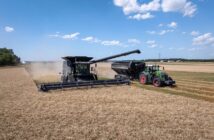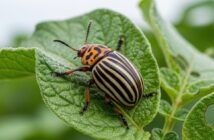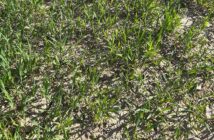The autumn light leaf spot (LLS) preliminary forecast, published today (24 October 2018), shows that the disease risk to winter oilseed rape (WOSR) is relatively low.
The regional forecast highlights the proportion of WOSR crops (with a disease resistance rating of 5) predicted to have more than 25% of plants affected by the disease in the spring.
It is the first season since 2013/14 that no regions have fallen into the highest risk category (>60%).
For southern England, the risk is exceptionally low, with the forecast predicting even lower disease pressures than the relatively low-risk 2013/14 season.
Historically, LLS risk is more serious toward the north of England and in Scotland. The 2018/19 preliminary risk in these regions can be described as moderate.
Dr Neal Evans, plant pathologist at CropSave Ltd, who puts together the forecast, said: “Disease survey data from commercial crops showed a relatively high pod incidence for LLS this year.
“Although the potential for higher disease pressure was there, relatively warm temperatures have helped peg back risk across Britain.”
The forecast can be used to guide crop management decisions. For a more accurate picture of local risk, people can build a customised forecast via the AHDB website. This forecast also takes account of variety, sowing date and autumn fungicide applications.
As local risk varies, the forecasts should only be used as a guide, and crops should be inspected regularly on a field-by-field basis. To provide the strongest risk assessment, plant samples should be put in polythene bags and kept at 10 to 15°C for around five days to bring out symptoms.
The preliminary forecast uses previous season pod incidence data, deviation from 30-year mean summer temperature data and 30-year mean rainfall data. In spring, the forecast is updated to reflect deviation in actual winter rainfall data from the 30-year mean.
For further information on LLS, fungicide performance and resistance management, visit ahdb.org.uk/knowledge-library/leafspots




